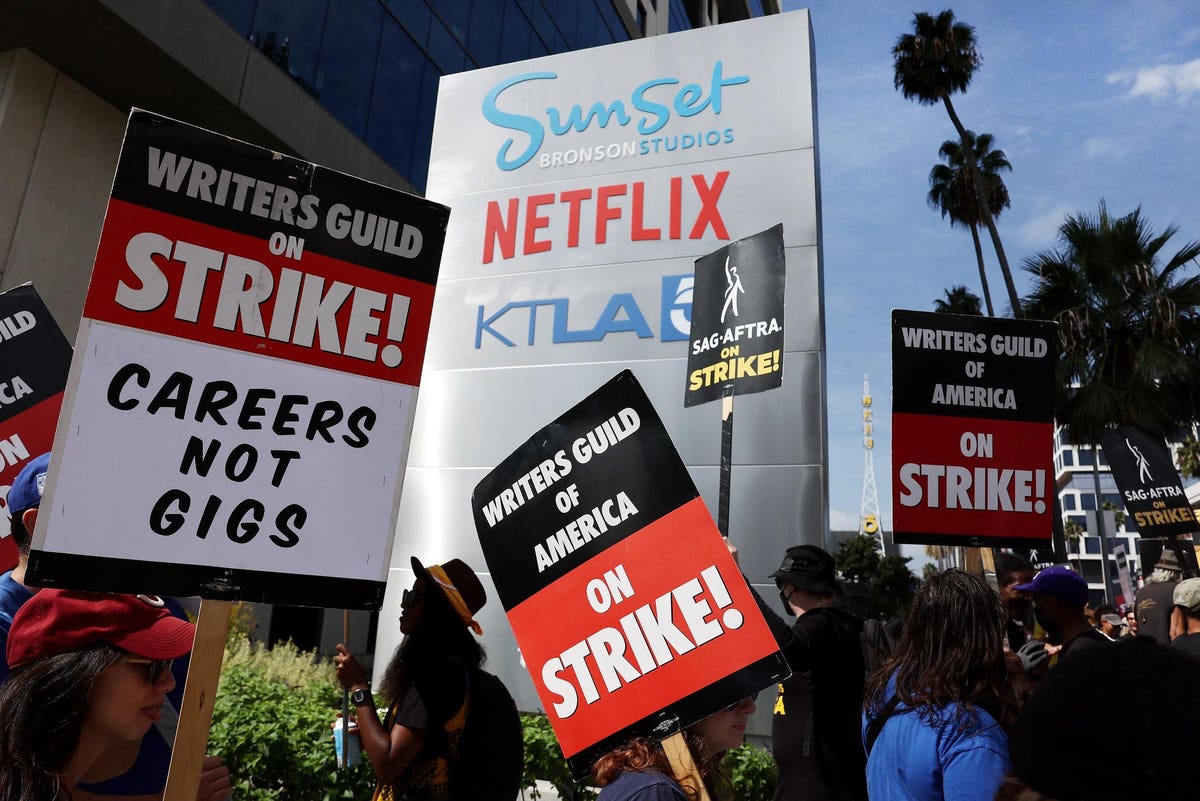Tonight, the Writers Guild of America (WGA) announced that their negotiating committee, the WGA West board and the WGA East council, all voted unanimously to recommend that the general membership of the organization accept the agreement that has been hammered out with the Alliance of Motion Picture and Television Producers (AMPTP).
Contained in the announcement is that the WGA strike, which has lasted for 148 days, officially ends at 12:01am PT tonight.
The WGA plans to hold meetings with members on both coasts this week, both in-person and on zoom, to discuss the details of the contract and answer any questions members may have.
The ratification vote will take place from October 2nd through October 9th.
The terms of the new deal, which can be found here, outline pay increases for writers, specifics regarding minimum staffing size, and a viewership-based residual plan. The Guild had also asked for an increase in employer contributions to the union’s health fund, and additional payments for screenwriters, both of which are included in the new three-year contract.
While the weekly pay for writers at the writer-producer level is now at a higher rate, which amounts to a 9.5% premiere over writers designated as lower level, which include story editors and executive story editors, those writers will also receive an increase of up to 5%. The rates for writer-producers go into effect for new seasons that start 60 days after ratification of the agreement while the rates for the lower level writers begin the Sunday after ratification.
One large change in this contract is that those with the title of Staff Writer, which is the lowest level on the creative ladder in the writers room, will now be paid script fees for the episodes they write. In the past, while all other writers received payment for the episodes that they wrote while Staff Writers were only paid their weekly salary.
When it comes to writers room size, the agreement states that the number of writers will be based on the number of episodes ordered: 6 or fewer episodes, 3 writers; 7 to 12 episodes, 5 writers, and 13 or more episodes, 6 writers; with designations for the number of higher and lower level writers per room broken out in the summary.
Of great concern to the Guild was the potential use of Artificial Intelligence (A.I.) in the creation of content. In the new contract, the union secured protections against A.I. being used to create and/or rewrite original material, and A.I. may not be used as “source material” for adaption.
Additionally, under this topic, it is stated that “The WGA reserves the right to assert that exploitation of writers’ material to train AI is prohibited by The Minimum Basic Agreement (MBA) or other law,” as stated by in its summary of the 2023 MBA.
Now that the Writers Guild has a new contract, Hollywood’s attention turns to SAG-AFTRA’s struggles with the AMPTP. The actors union is anxiously awaiting their return to the negotiating table as they recently hit day 75 on the picket line.
Read the full article here





